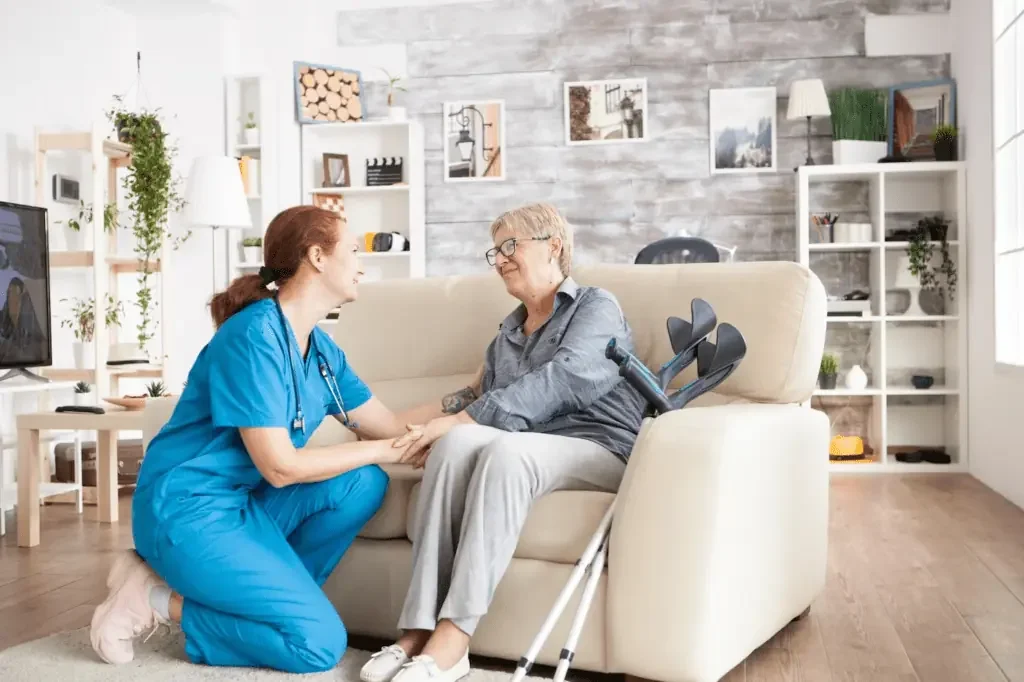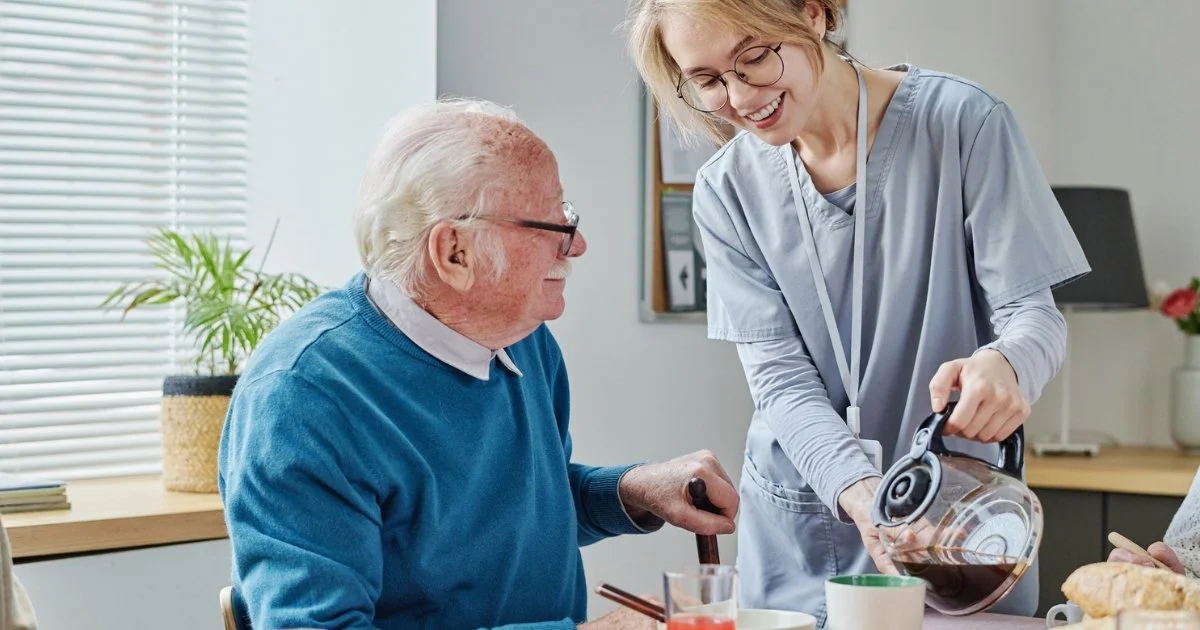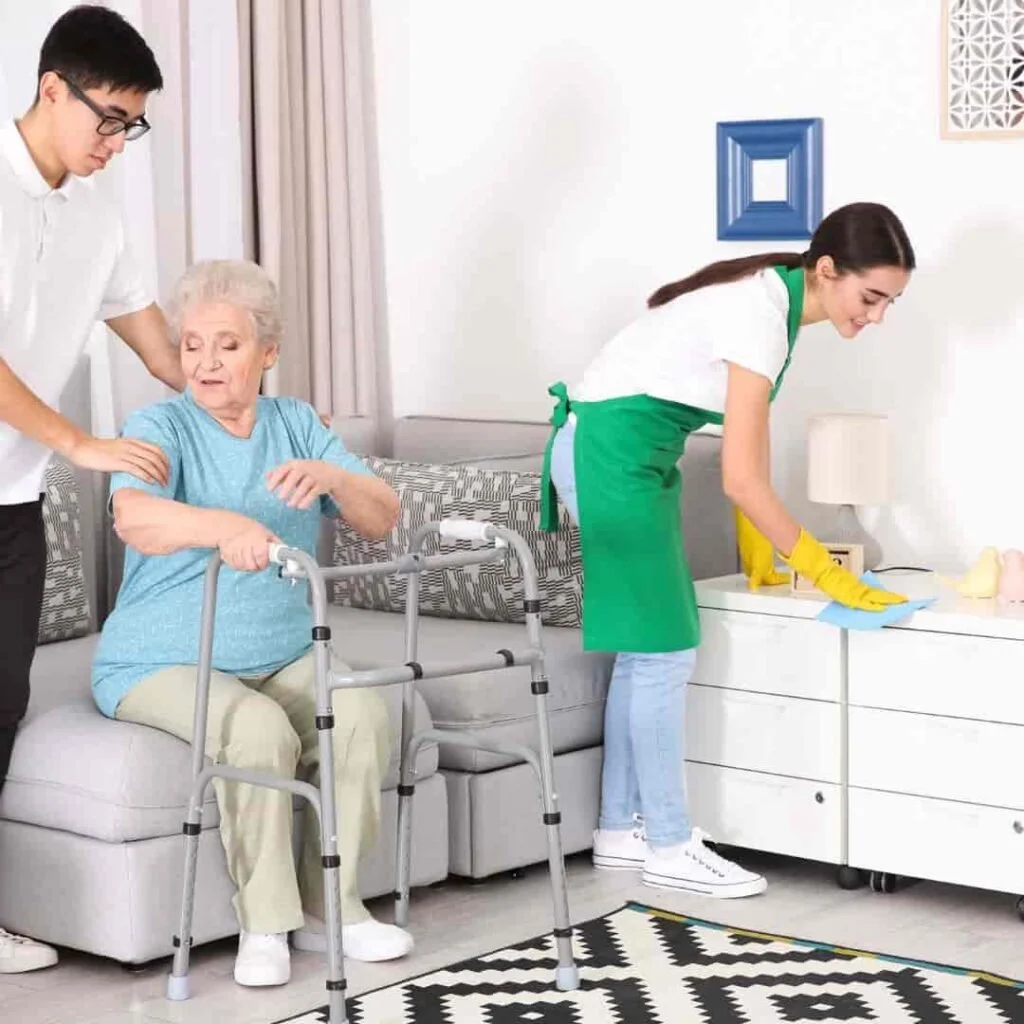Care That Comes in Through the Front Door—Not the Hospital Door
Most hospital stays begin with something small for example, a fall, dehydration, skipped medication, or a bout of dizziness that snowballs into a serious issue. But many of these situations are preventable with the right help before they reach the emergency stage. That’s where in-home caregivers make all the difference. By offering daily support, oversight, and companionship, home health aides help seniors maintain their independence and stay out of the hospital. It’s care that comes in through the front door, long before the hospital door ever needs to open.
Aging in place is more than just staying home; it’s about staying safe, stable, and connected. For many seniors, living at home offers emotional comfort and familiarity, but it also brings new risks as physical and cognitive abilities change.
The key to aging in place successfully lies in prevention, the small, consistent actions that protect seniors from the setbacks that can lead to hospitalization.
How In-Home Care Prevents Hospital Visits
1. Preventing Falls Before They Happen
Falls are one of the leading causes of emergency room visits among older adults. Most falls happen in familiar environments e.g. bathrooms, bedrooms, or hallways.
Home caregivers help by:
Removing tripping hazards like loose rugs or cluttered walkways
Ensuring good lighting and secure flooring
Assisting with safe movement from bed to chair or bathroom
Encouraging light, safe exercise to maintain balance and strength
A caregiver’s watchful presence can prevent the small accidents that so often lead to major setbacks.
2. Keeping Track of Medications
Medication errors are another common reason seniors end up back in the hospital especially after discharge from surgery or illness.
Home health aides and caregivers help seniors stay on schedule by:
Providing gentle reminders for dosage and timing
Monitoring for side effects or signs of confusion
Keeping medications organized and visible
Coordinating updates with family and healthcare providers
This simple consistency can make the difference between stability and readmission.
3. Monitoring Subtle Health Changes
Often, early warning signs of illness, like swelling, fatigue, or reduced appetite, go unnoticed until they become serious. Trained caregivers recognize these small changes and communicate them promptly.
That means families and doctors can respond quickly, adjusting medication or scheduling a check-up before the problem worsens.
It’s not just reactive care; it’s proactive partnership.
4. Supporting Nutrition and Hydration
Seniors recovering from illness or managing chronic conditions often struggle with appetite or forget to drink enough water. Poor nutrition or dehydration can weaken the immune system and delay recovery.
Caregivers can:
Prepare balanced, easy-to-eat meals
Encourage hydration throughout the day
Monitor for changes in appetite or swallowing difficulties
Consistent, nutritious routines keep energy steady and prevent unnecessary health declines.
5. Providing Emotional Stability and Companionship
Loneliness isn’t just emotional; it’s physiological. Social isolation is linked to higher rates of depression, falls, and hospitalizations.
Caregivers bring steady companionship into each day: sharing meals, conversations, or light activities that keep the mind and spirit engaged. Emotional well-being supports physical health, and a familiar caregiver presence provides reassurance that someone is always watching out.
When “Prevention” Means Peace of Mind
Families often worry most about what happens when they can’t be there overnight, during work hours, or in between visits. In-home caregivers fill that gap.
They serve as a steady set of eyes and ears, ensuring the home environment stays safe and seniors stay active and engaged. Small adjustments, a hand offered when standing, a reminder to rest, or simply noticing when something seems “off”, can prevent an entire cascade of medical complications.
This is what proactive care looks like: quiet, steady, and always there when it matters most.
How Caregivers Support Recovery and Long-Term Stability
Home caregivers bridge the gap between medical instructions and daily life. They don’t replace doctors or nurses; they reinforce what healthcare providers prescribe by helping seniors follow through at home.
Caregivers can:
Encourage post-surgical therapy exercises
Track recovery milestones and report progress
Ensure rest schedules and activity limits are followed
Provide transportation for follow-up appointments
Their presence ensures that home remains a safe, healing place not a risky one.
The Difference of Proactive Home Care
Proactive care shifts the focus from reaction to prevention. Instead of waiting for health problems to arise, caregivers and families work together to spot early changes and address them immediately.
Benefits include:
Reduced hospital readmissions
Improved independence and confidence
Better overall quality of life
Peace of mind for families
Every home visit adds stability. One small act of care at a time.
At Elite Care Northwest (ECNW), we believe the best care starts before a crisis ever happens. Our caregivers are trained to provide preventive, attentive support that keeps seniors safe and healthy where they belong at home.
We help families by offering:
Personalized care plans built around safety, comfort, and independence
Fall prevention and home safety assessments
Medication reminders and communication with healthcare providers
Nutrition support and hydration monitoring
Companionship and emotional reassurance every day
Our physician-led approach ensures every plan is guided by medical insight and designed to reduce risks, so seniors can continue to live confidently at home without unnecessary hospital visits.
The best healthcare doesn’t always come from a hospital. It comes from the quiet, steady presence of someone who cares enough to notice the small things before they become big ones.
With in-home caregivers, seniors gain more than daily help. They gain safety, stability, and peace of mind. It’s care that keeps them strong, supported, and exactly where they want to be: home.
Contact Elite Care Northwest today to learn how our preventive, physician-led home care can help your loved one stay healthy, independent, and thriving at home.



